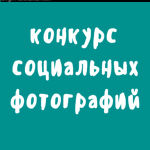The World Bank in Kazakhstan
The World Bank Group consists of five organizations: the International Bank for Reconstruction and Development (IBRD), the Multilateral Investment Guarantee Agency (MIGA), the International Finance Corporation (IFC), the International Development Association (IDA), and the International Center for the Settlement of Investment Disputes (ICSID). Kazakhstan is currently a member of almost all of these organizations except for IDA.
As a developing country in posts-Soviet Central Asia, Kazakhstan became a member of IBRD and MIGA in July 1992, IFC in September 1993, and ICSID in October 2000. Since 1992, the IBRD has provided twenty one loans to Kazakhstan totaling US$1.819 billion. Of this, US$1.171 billion have already been disbursed.
In addition to its direct lending, the IBRD has helped mobilize co-financing and parallel financing from other sources in the amount of US$175 million during the same period. Four meetings of the Consultative Group for Kazakhstan held under the chairmanship of the World Bank, mobilized nearly US$4 billion in the form of official development assistance to Kazakhstan.
Initial lending from the World Bank (Rehabilitation, Structural Adjustment and Financial Sector Adjustment Loans) focused on supporting the Government’s effort in designing and implementing structural reforms in key areas such as: privatization, enterprise reform, financial sector reform and social protection. While most of the IBRD loans are for specific projects, IBRD also makes adjustment loans designed to support introduction of basic changes in economic, financial, and other policies of major importance. Disbursements on these loans are conditional on certain performance objectives. Adjustment loans for Kazakhstan have helped the development of foreign exchange markets and provided non-inflationary financing of the budget deficits.
The first investment projects focused on urgent social issues such as social protection and urban transport in the large cities as well as on the establishment of the infrastructure for the transition to a market based economy (technical assistance loans for economic management and petroleum sector). Once significant progress was made on the implementation of key structural reforms, the focus has begun to shift towards investment projects and adjustment operations for deepening and fine tuning reforms. (Public Sector Resource Management Adjustment and Pension Reform Adjustment Loans).
The share of investment loans accounts for 41 percent, and the share of adjustment loans accounts for 59 percent of total lending during the 1993-2000 period. Adjustment loans, by their nature, are quick disbursing loans. Of the adjustment loan commitments of US$1,070 million, US$970 million have already been disbursed. Investment projects disburse at a considerably slower pace than the adjustment loans, since disbursements are directly linked to the physical implementation of projects.
The geographical coverage of the World Bank financed projects indicates that every province (oblast) has benefited or will benefit from these projects. The lending program for the next three years provides for even a broader geographical coverage.
The new lending program for Kazakhstan, the so-called Country Assistance Strategy, for the next three years is now under discussion. The World Bank’s Country Assistance Strategy (CAS) is a major document developed in cooperation with the government, which sets out the level and composition of financial and technical assistance as well as the policy framework, that the World Bank seeks to provide to a particular country for the next years. There are consultations held with the government and civil society of Kazakhstan to better define the scope and size of the Bank’s assistance program in the country.
For Kazakhstan, the CAS for the period of 2001-2003 focuses on the four broad areas:
• Promoting broad-based private sector-led growth to increase employment opportunities
• Reforming the public sector and tackling corruption
• Supporting the most vulnerable through an efficient social safety net
• Protecting the environment
There are currently planned some 13 projects for the total amount over the next three years that might range from US$500 to 850 million. The types of projects that are expected to be supported are particularly in water supply and water management, support for the agricultural sector and rural roads, expansion of a program of real estate registration, financial sector infrastructure, improvement of management of the tax revenue system, and finally, continued support for health sector improvements.
Source: World Bank
Table of contents
The Foreign Investors Council is a model of co-operation between young democracy and transnational companies Askar Yelemessov
Kazakhstan Investment Policy: Time to Change Priorities Dulat Kuanyshev
The Association of Investors of Kazakhstan: Our might is in unity, and the path to success lies in our solidarity! Serik Tulbasov
Fundamentals of the Legal Regulation of Production Sharing Agreements in the Russian Federation Sergei Gudkov
Production Sharing Agreements: The Legal Aspects Aigoul Kenjebayeva










